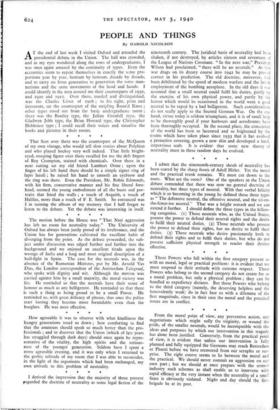I derived the impression that the majority of those present
pregarded the doctrine of neutrality as some legal fiction of the nineteenth century. The juridical basis of neutrality had been shaken, if not destroyed, by articles sixteen and seventeen of the League of Nations Covenant. "In the next war," President Wilson had proclaimed, "there will be no neutrals." As this war drags on its dreary course into 1942 he may be pros ad correct in his prediction. The old doctrine, moreover, had been debilitated by the speed of modern warfare and the lavish employment of the bombing aeroplane. In the old days it was assumed that a small neutral could fulfil his duties, partly by the exercise of his own physical power, and partly by the horror which would be occasioned in the world wert a good neutral to be raped by a bad belligerent. Such considerations do not really apply to the Second German War. On the one hand, virtue today is seldom triumphant, and it is of small help to be thoroughly good if your harbours and aerodromes have been thoroughly occupied. In the second place, the conscience of the world has been so lacerated and so frightened by the events which have taken place since 1933 that it has evolved a protective covering, grown a new skin and developed a hard, impervious scab. It is evident that some new theory of neutrality must in these random days be evolved.


































 Previous page
Previous page